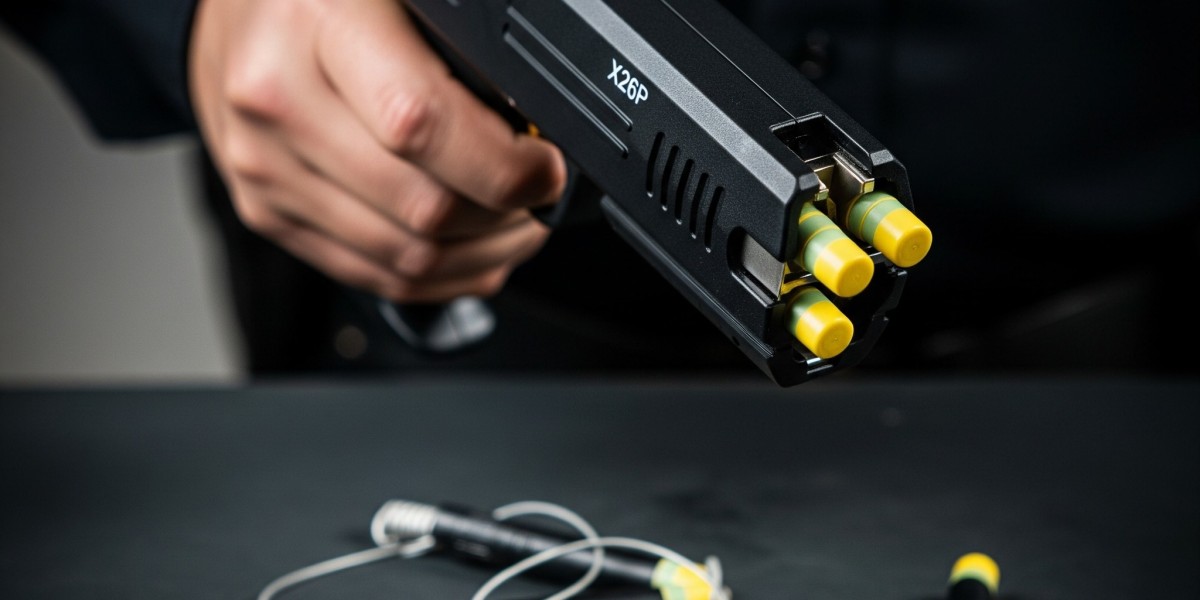Introduction
Personal safety is a top priority for many people living in or visiting urban areas. For those who want non-lethal options that increase their confidence and chance to escape a dangerous situation, two commonly considered tools are the personal defense taser and blank guns. Each has distinct strengths, limitations, and legal considerations — especially in South Africa and cities like Cape Town. This guide explains how each device works, when they make sense, safety and training tips, legal issues to check in Cape Town, and where to find reputable sellers. If you’re evaluating tools to add to your personal-defense toolkit, this post will help you make an informed and responsible choice.
What is a Personal Defense Taser?
A personal defense taser (also called a stun gun or electroshock device) is designed to incapacitate an attacker temporarily by delivering an electrical pulse that disrupts voluntary muscle control. Consumer tasers typically come in two forms:
Contact stun guns: Must be pressed directly against the attacker; they deliver a high-voltage, low-current shock that causes pain and muscle disruption.
Projectile tasers (cartridge-based): Fire two small probes connected by wires that deliver the shock from a short distance — these are more common in law-enforcement variants but consumer versions exist where legal.
Advantages:
Immediate incapacitation potential (especially with projectile types).
Compact, often easy to carry and quick to deploy.
No permanent ballistic injury (non-lethal when used correctly).
Limitations:
Effectiveness varies with clothing, body size, and probe placement.
Contact stun guns require close proximity, which can be risky.
Battery dependence — must be charged and tested regularly.
If you want to browse models and accessories, reliable retailers list stun guns and defense devices which help compare features and specifications; see a curated selection of personal defense taser options for a quick start. (Links to reputable product pages are provided later in this guide.)
What Are Blank Guns and How Are They Used?
Blank guns are replica firearms that fire blank cartridges — they create a loud muzzle blast and flash but do not fire a projectile. They’re commonly used for training, signaling, film and theatre, and as a psychological deterrent in self-defence scenarios.
Benefits:
Realistic sound and visual deterrent: the bang and flash can shock, disorient, and make an attacker believe you have a live firearm.
Lower regulatory burden in many places compared to live firearms (though still regulated).
Useful for realistic training scenarios without live rounds.
Drawbacks:
No stopping power — they rely on deterrence and the attacker’s reaction.
Risk of injury at very close range from gas and hot particles; not safe to fire at someone’s face or at point-blank distance.
Potential to escalate a confrontation if an attacker recognizes the replicate nature.
For people in Cape Town exploring locally available options, some vendors list blank gun models and legal guidance; check reputable stores that sell blank guns Cape Town products and provide clear safety information.
Legal Considerations in Cape Town and South Africa
Before buying any defensive device, you must know the law. South African regulations concerning stun guns, electroshock devices, and replica firearms can be complex and may change. Key points to check:
Possession and carry laws: Some self-defence devices require permits, while others may be restricted or prohibited. Always verify current provincial and municipal rules.
Use-of-force standards: Even non-lethal devices can lead to criminal charges if used improperly. Use force only when legally justified and proportionate.
Public display and transport: Brandishing a blank gun or taser in public can cause panic, police response, or legal trouble — transport in secure cases and avoid public display unless necessary.
Import and sale restrictions: Some models (especially projectile tasers) may face stricter import or sales controls.
For shopping and information, reputable local suppliers offer product pages and legal guidance — see listings for personal defense taser devices and blank-gun suppliers in Cape Town to confirm whether an item is legal and in stock.
Choosing Between a Personal Defense Taser and a Blank Gun
Which device is “better” depends on your priorities:
Choose a personal defense taser if:
You want a tool designed to incapacitate through neuromuscular disruption.
You prefer a solution that can stop an actively aggressive person (bearing in mind limitations).
You’re prepared to train with it and accept maintenance (charging batteries, testing).
Choose a blank gun if:
Your main objective is deterrence — making an attacker believe you might have a lethal weapon.
You need a realistic training tool for drills or film/theatre.
You prefer a simpler, low-maintenance device that doesn’t rely on batteries.
Many personal-safety plans combine options: a loud alarm or vocal deterrent, a personal taser for immediate defense, and awareness training to avoid escalation. Whatever you choose, consider carry comfort, accessibility, and your willingness to train.
Safety, Training, and Responsible Use
Owning a device is only part of staying safe. Follow these principles:
Get training: Practice deployment under simulated stress, learn legal boundaries, and rehearse escape routes. Training reduces fumbling and increases safe, effective use.
Regular maintenance: Charge taser batteries, test the unit, and keep blank guns clean and deactivated (or rendered safe) when not in use.
Practice de-escalation: The best self-defence avoids violence. Use situational awareness, avoidance, and verbal de-escalation first.
Storage: Secure devices away from children and unauthorized users. Use locked cases and keep cartridges or batteries stored separately.
Documentation: Keep purchase receipts, manuals, and any legal permits together in case you need to prove lawful ownership.
Practical Scenarios and Tactics
Urban walking at night: Carry a taser in a secure yet accessible compartment. Keep hands free and maintain awareness. If threatened, create distance, use a taser if necessary, and retreat rapidly to populated areas.
Public transport: Avoid brandishing any device. If threatened, prioritize escape or attracting attention; deploy non-lethal devices only when escape is impossible.
Home defense: Blank guns can be used as a deterrent to startle intruders, but pair with alarms, lighting, and calling authorities. A taser can create an opportunity to escape, but be mindful of legal use inside your property.
Where to Buy and What to Look For
When shopping, prefer vendors with clear safety and legal information, good after-sales support, and transparent return policies. Look for:
Manufacturer specs (voltage, range, battery life).
Warranty and repair options.
Clear instructions on legal compliance in your region.
Reviews and community feedback.
For convenient browsing, reputable product pages list stun guns and defensive devices; you can explore a selection of personal defense taser devices and compare features. If you prefer local availability, some retailers advertise blank guns Cape Town stock and will indicate whether items are immediately available or require special processing.
Final Thoughts
Personal safety is about layers — awareness, avoidance, verbal defense, and, when necessary, tools that help you escape harm. Both personal defense tasers and blank guns have roles: tasers for active incapacitation (within their limitations) and blank guns for deterrence and realistic training. The right choice depends on your legal environment, comfort with a device, and commitment to training.
Before making a purchase, research current local laws in Cape Town, compare products from trusted suppliers, and invest time in training and safe handling. For product examples and to start comparing models, browse reputable collections of personal defense taser options and local listings of blank guns Cape Town vendors.
Frequently Asked Questions (FAQ)
Q1: Are personal defense tasers legal in Cape Town?
A: Legality varies and may depend on the type of device (contact stun gun vs. projectile taser). Before purchasing, check the most recent national and provincial regulations and consult reputable local vendors who clearly state compliance. Many suppliers list personal defense taser models and legal notes for buyers.
Q2: Can I carry a blank gun in public as a deterrent?
A: No — openly carrying or brandishing a blank gun in public is likely to cause alarm and could lead to police intervention or criminal charges. If you own a blank gun for training or as a prop, transport it securely and avoid public display. Vendors that sell blank guns Cape Town often include guidance on safe transport and local restrictions.
Q3: Which is more effective: a taser or a blank gun?
A: They serve different purposes. A taser is designed to temporarily incapacitate an attacker; a blank gun’s primary power is psychological — the noise and flash can deter. Effectiveness depends on the situation, legal constraints, and the user’s ability to deploy the device properly.
Q4: What training should I undertake before using a taser?
A: Seek hands-on instruction covering device deployment, legal limits, scenarios, and safe storage. Practice drawing and activating the device under controlled conditions and learn first-aid basics for electrical shocks and related injuries.
Q5: How should I store these devices at home?
A: Store devices unloaded and powered down in a locked container, with cartridges, batteries, or power sources stored separately. Keep all manuals and permits accessible so you can demonstrate lawful ownership if needed. Many sellers of personal defense taser units and blank guns Cape Town products offer storage recommendations.
Q6: Where can I buy reliable tasers and blank guns in South Africa?
A: Purchase only from reputable suppliers who disclose specifications, provide warranties, and note local legal compliance. Look for vendors offering clear information on personal defense taser models and listings that indicate availability for blank guns Cape Town buyers.








